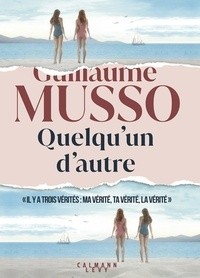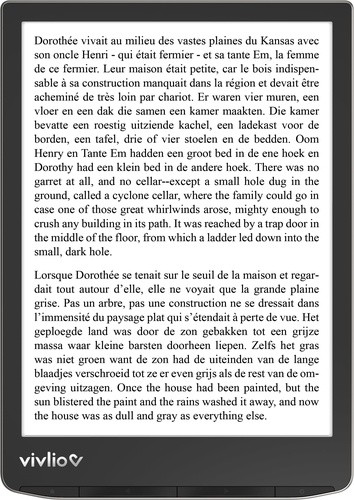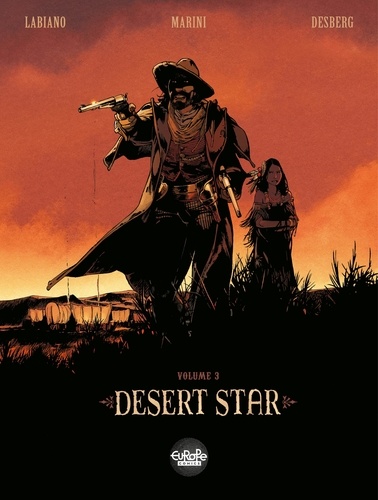Stephen Desberg was born in Brussels in 1954 and started out as a comic book author in 1976, writing short stories for Tintin magazine (Le Lombard). A follower of Maurice Tillieux, the creator of "Gil Jourdan, " in 1980 Desberg began working for the weekly Spirou magazine (Dupuis), taking over the "Tif and Tondu" adventure series, illustrated by Will. He then successively created the characters 421, Billy the Cat, Mic Mac Adam and Jimmy Tousseul, before gradually moving to a more adult readership, publishing two albums in the Aire Libre collection by Dupuis, alongside Will: "Le Jardin des désirs" (1989) and "La Vingt-Septième Lettre" (1990).
An original and versatile writer, Desberg goes from one genre to another with ease and inventiveness. In 1996 he tackled the topic of racism with illustrator Bernard Vrancken in "Le sang noir, " a romantic saga in four albums published by Le Lombard. As an American citizen, Desberg has also explored many themes linked with his other home country, as evidenced by the long-running financial thriller "IR$" with Le Lombard, also illustrated by Vrancken.
America serves as a backdrop in his other albums as well, such as "L'étoile du désert" (1996, Dargaud, 2016 Europe Comics, "Desert Star"), a twilight western created with Enrico Marini. Desberg is also passionate about religious themes, having collaborated with Enrico Marini on riddles of Christian origins in "The Scorpion" (2000-2014, Dargaud, Cinebook in English), a saga bursting with flamboyant heroes with capes and swords in eighteenth-century Rome.
A writer as prolific as any out there, Desberg has authored many other series over the years, including "Cassio" (2007; Europe Comics in English 2018), "Miss October" (2012; Europe Comics in English 2018), "Sherman" (2011; Europe Comics in English), and "Golden Dogs" (2014; Europe Comics in English 2016), all with Le Lombard. Along the way, he also continued work on the saga "Black Op" (2005 Dargaud, 2015 Europe Comics), a series illustrated by his friend Hugues Labiano.
His recent work includes the espionage series "Jack Wolfgang" (2017, Le Lombard, Europe Comics in English), together with Henri Reculé, centered on a whip-smart wolf who is both world-famous food critic, and secret agent for the CIA.
Enrico Marini, an Italian national, was born on August 13th, 1969, in Switzerland, where he studied illustration at the Basel Academy of Fine Arts. His style is influenced by American comics, Italian fumetti, French bande dessinée and Japanese manga, and he is an admirer of authors such as Milton Caniff, Alex Toth, John Romita Sr., Mike Mignola, Hermann, Jordi Bernet, Hergé, Giraud and Otomo.
His career was launched at the 1987 Festival de la Bande Dessinée in Sierre, where he would compete with the most promising emerging talents. His own talent was recognized immediately, and he was entrusted with his first series, "Olivier Varèse, " based on a script by Thierry Smolderen, produced by Alpen Publishing. In 1992, Marini and Smolderen tried their hand at something totally different with "Gipsy" ("Gypsy"), a flesh-and-blood sci-fi adventure with a real badass hero.
Marini would then enter the realm of vampires with "Rapaces" (Europe Comics, "Raptors"), this time alongside Jean Dufaux. With Stephen Desberg, he fulfilled his childhood dream of creating a western-style comic, "L'Étoile du désert" (Europe Comics, "Desert Star"). Together they co-wrote "Le Scorpion" ("The Scorpion, " Cinebook), a massive swashbuckling adventure series. More recently, since 2007, Marini, now a full-fledged writer, has been bringing ancient civilizations back to life with the epic saga of "Les Aigles de Rome" (Europe Comics, "The Eagles of Rome").
He followed that with "Batman: The Dark Prince Charming" (published by DC), one of his most ambitious projects to date. His latest work includes the gritty and beautiful graphic novel "Noir burlesque" (Dargaud, Europe Comics in English). He is known to be one of the rare comic artists who inks and paints his original art by hand directly on the page.
Hugues Labiano was born in Bayonne in 1963, but has always been somewhat fascinated by all things American.
Yet it is actually through Spain that he began his career with "Matador" (Glénat, 1992), a series written by Gani Jakupi. He then returned to his true passion when he created "Dixie Road" (Dargaud, 1997, Europe Comics, 2017) with Jean Dufaux, and "Mister George" (Lombard, 2003), with Rodolphe and Serge Le Tendre. It is difficult to pin him down to one genre. Even though his illustrations lean towards a certain realism, he aims to distort them slightly in order to better accentuate the emotion of a face or try out unusual framing.
After ten years of drawing the United States of yesterday and today, Labiano decided on a change of scenery. It didn't take long. In 2005 Stephen Desberg asked him to explore the best of both worlds through "Black Op" (Dargaud, Europe Comics in English), a series focusing on CIA agents, whose work takes them from India to Afghanistan via Russia. The adventure came to a close in 2010 with the publication of the sixth volume, but it resumed with a second cycle in 2014.
In 2012, Labiano went solo and created two episodes of "Quatre coins du monde" (Dargaud). A few years after that, he had the honor of taking over for Enrico Marini on the series "Etoile du désert" (Dargaud; "Desert Star, " Europe Comics), illustrating volumes three and four of the series. Most recently, he has illustrated "Le Lion de Judah" (Dargaud; "The Lion of Judah, " Europe Comics), teaming up again with Stephen Desberg.






